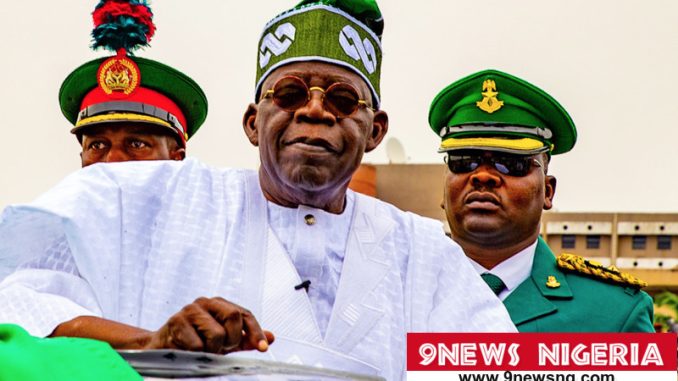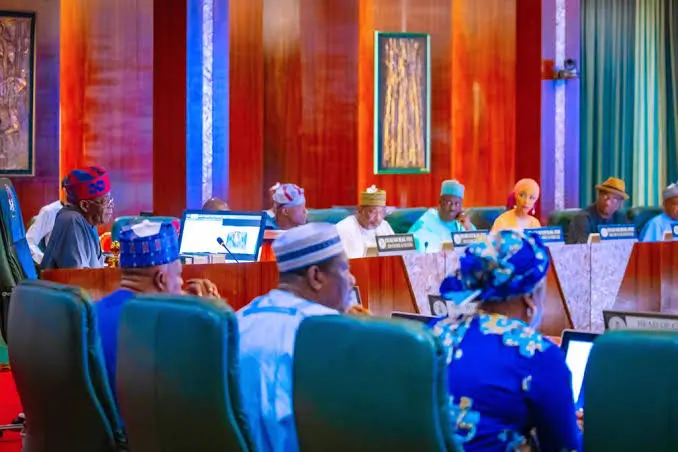
President Bola Ahmed Tinubu has reshuffled his cabinet, removing six ministers, including the Minister of Tourism, and appointing seven new ones. This move follows increasing pressure from political allies, particularly in Lagos, and reflects ongoing efforts to improve governance.
Now, fear has gripped the members of his cabinet and ministries; the fear of Tinubu has become the beginning of wisdom. His body language has become unpredictable, as he is showing a tougher stance.
People like myself are becoming hopeful that something good is about to happen for Nigeria, and that policies will be implemented to foster good governance under President Bola Ahmed Tinubu, the Jagaban.
Will this be sustained and lead to positive change for Nigeria and its citizens, or will it be a repetition of the history we witnessed during the previous regime of Buhari, also from the All Progressives Congress (APC)? Is something good going to emerge from Nazareth, or are we in for another descent into darkness and uncertainty, a continuation of bad governance? As someone wrote in a social media post, Buhari’s successor, Tinubu, may echo the biblical story from 1 Kings 12:14, where Rehoboam addressed the people of Israel, saying, “My father made your yoke heavy, but I will add to your yoke. My father disciplined you with whips, but I will discipline you with scorpions.”
Tinubu’s cabinet reshuffle has sparked “The Fear of Tinubu” among his executives. The pressing question is: will this lead to real change for the better? Will it be sustained, or will it devolve into yet another Buhari saga?

By Obinna Ejianya (9News Nigeria – Melbourne, Australia)
President Bola Ahmed Tinubu’s administration, now over a year in office, is undergoing a significant transformation as the president embarks on a cabinet reshuffle, stirring fear among ministers and political elites. But Nigerians, scarred by the unfulfilled promises of past administrations, particularly that of his predecessor, Muhammadu Buhari, wonder: is this a true step towards reform, or will it follow the same trajectory of fleeting fear and ultimate failure? This question looms large, especially in light of the serious economic hardships and social instability that have characterized Tinubu’s tenure so far.
The Buhari Paradox: A Fear That Quickly Faded
To understand the potential pitfalls of Tinubu’s current actions, it is essential to revisit the early days of President Muhammadu Buhari’s first term. Buhari came into power with a reputation for discipline, forged during his time as a military ruler. His arrival was accompanied by what many described as “Buhari’s body language,” a fear-induced order that swept through the civil service and executive branches. Immigration officers, airport officials, and public servants suddenly found themselves under a microscope, fearing swift consequences for corruption or inefficiency.
I remember traveling back to Nigeria from an overseas trip, and all the airport officials, immigration officers, and others were comporting themselves with a sense of fear as they diligently executed their duties. There was a notable atmosphere of fear and orderliness. I asked someone why everyone was trying to maintain their composure, and the person replied, “The fear of Buhari is the beginning of wisdom.”
In the early months, this fear appeared to bring about a semblance of discipline and good governance. However, it didn’t last. After about eight months, Nigerians realized that Buhari’s tough image was just that—an image. As corruption festered under his watch, it became clear that there was little substance behind the rhetoric. Buhari’s administration, once touted as a beacon of anti-corruption, became synonymous with nepotism, mismanagement, and a lack of accountability.
Buhari’s failure to deliver on his promises plunged the country into worsening economic conditions. His government’s inability to control rising inflation, address insecurity, or manage the insurgencies led to widespread disillusionment. Boko Haram, banditry, and separatist movements like IPOB only gained strength during his presidency, eroding any trust the public had initially placed in him. By the end of his tenure, Buhari’s administration was widely regarded as one of Nigeria’s worst, marked by stagnation and mounting socio-economic crises.
Tinubu’s Sudden Awakening: A Walk of Shame or Genuine Reform?
Fast forward to 2024, and Bola Tinubu finds himself at a similar crossroads. After more than a year in office, Tinubu’s administration has been characterized by severe economic hardship. His decision to remove the fuel subsidy—a move aimed at stabilizing government finances—resulted in hyperinflation. Prices of basic goods skyrocketed, and the naira continued its freefall against the US dollar. The ripple effects have been devastating: transportation costs have surged, businesses have struggled, and unemployment rates have worsened. The average Nigerian has been left grappling with an unbearable cost of living.
Now, faced with mounting pressure, Tinubu appears to have woken up to the gravity of the situation. His recent cabinet reshuffle, where several ministers were removed and new faces appointed, is a clear sign that the president is aware of the discontent brewing across the country. The fear of Tinubu has gripped the executive, much like the fear of Buhari did in his early days. Ministers, knowing they could be the next to be ousted, are on edge.
But will this fear be enough to drive real change? Or is it just another episode of political theater, designed to buy time before the country sinks further into economic and social turmoil?
The Fear of Tinubu: Will It Last?
Tinubu’s reshuffle was preceded by a series of policy directives aimed at reducing the cost of governance. He has ordered ministers to scale down their convoys, signaling a new focus on efficiency and cost-cutting. In theory, these are the kinds of steps that could lead to more effective governance, but Nigerians have seen this script play out before. Buhari, too, began his tenure with bold promises of reform, only to abandon them in favor of personal and political expediency.
The real test for Tinubu lies in whether his reshuffle and other actions will lead to tangible improvements in the lives of Nigerians. Performance-based evaluations have been cited as a key factor behind the reshuffle, with the Central Delivery and Coordination Unit (CDCU) tasked with assessing the ministers’ impact. However, without consistent enforcement of accountability and transparency, these reforms could easily fall apart.
For now, the fear of Tinubu remains. Ministers are uncertain about their future, and the political landscape is rife with speculation. But fear alone does not guarantee success. If Tinubu fails to implement real reforms—beyond the cosmetic changes of reshuffling his cabinet—the country could be headed down the same path of economic decline and political instability that defined Buhari’s administration.
The Road Ahead: Will Tinubu Break the Cycle?
The stakes are high. Nigeria, Africa’s most populous nation, is at a critical juncture. Economic indicators are bleak, with inflation at record highs and insecurity still rampant. Boko Haram and other insurgent groups continue to threaten national security, while separatist movements in the South-East and South-West regions persist. Tinubu’s ability to navigate these challenges will determine whether his administration is remembered as a turning point or just another failed experiment.
In the coming months, Nigerians will be watching closely to see if Tinubu can sustain the momentum of his current actions. Will his cabinet reshuffle lead to a more accountable, responsive government? Or will it, like Buhari’s body language, fade into irrelevance as corruption and inefficiency take root once again?
If Tinubu can maintain this pressure and continue to make tough, necessary decisions, there may be hope for a brighter future. But if history is any guide, the fear of Tinubu—much like the fear of Buhari—may prove to be nothing more than a temporary phase, quickly replaced by the same old political gamesmanship and disregard for the public good.
Only time will tell whether Tinubu will be the leader Nigeria so desperately needs, or if his administration will follow Buhari’s tragic trajectory into failure, however I and, all well-meaning Nigerians pray for the former.
